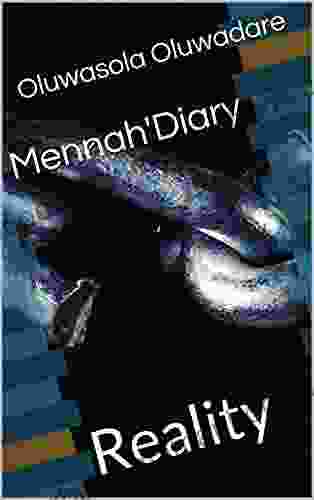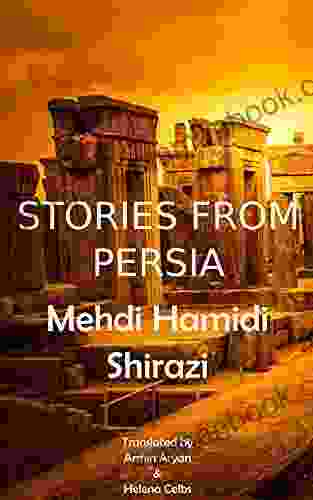Mennah Diary, an anonymous online diary, has taken the internet by storm. With its raw and intimate entries, it purports to offer a glimpse into the life of a young Emirati woman living under strict religious and cultural norms. The diary has garnered millions of views, sparked heated debates, and raised questions about the realities of life for women in the Middle East.
However, as with any viral phenomenon, the authenticity of Mennah Diary has been called into question. Some critics have alleged that the diary is a hoax, while others have raised concerns about the exploitation of vulnerable individuals. This article aims to provide an in-depth analysis of Mennah Diary, examining its content, context, and the surrounding controversies.
5 out of 5
| Language | : | English |
| File size | : | 2184 KB |
| Text-to-Speech | : | Enabled |
| Screen Reader | : | Supported |
| Enhanced typesetting | : | Enabled |
| Word Wise | : | Enabled |
| Lending | : | Enabled |
Authenticity and Credibility
Mennah Diary has been the subject of intense scrutiny regarding its authenticity. Critics have pointed to inconsistencies in the writing style and grammatical errors, suggesting that multiple authors may be involved. Others have questioned the diary's depiction of Emirati society, arguing that it presents an overly simplistic and sensationalized view.
Supporters of the diary, on the other hand, maintain that the raw and emotional nature of the entries lends credibility to its authenticity. They point to the diary's unwavering criticism of Emirati society, which would be unlikely for a hoaxer to fabricate. Furthermore, they argue that the diary's popularity and resonance with readers suggest that it taps into a genuine experience of women in the region.
Depiction of Emirati Society
Mennah Diary offers a highly personal and critical perspective on life in the United Arab Emirates. The diary entries paint a picture of a society where women face severe restrictions on their freedom, mobility, and self-expression. Mennah describes being subjected to constant surveillance, unable to leave her home without a male guardian, and facing pressure to conform to traditional gender roles.
While the diary's depiction of Emirati society may be subjective and limited to Mennah's personal experiences, it has nonetheless sparked important conversations about the challenges faced by women in the region. It has highlighted the need for greater gender equality, tolerance, and respect for individual liberties.
Exploitation Concerns
Along with questions about authenticity, Mennah Diary has also raised concerns about the potential exploitation of vulnerable individuals. Critics have suggested that the diary's creator may be using Mennah's story for financial gain or to advance a particular agenda. They point to the fact that the diary is monetized through advertising and that the creator has granted exclusive access to certain media outlets.
Supporters of the diary argue that it provides a valuable platform for women's voices in the Middle East and that Mennah's anonymity is necessary to protect her from potential backlash or harm. They contend that the creator is using the diary responsibly and with the best interests of Mennah at heart.
Media Frenzy and Ethical Implications
The viral success of Mennah Diary has brought immense scrutiny and media attention to its creator. While this attention has helped raise awareness of the challenges faced by women in the Middle East, it has also raised ethical concerns about the impact on Mennah's privacy and well-being.
Critics have argued that the media's relentless pursuit of the creator's identity and personal details constitutes an invasion of privacy. They contend that Mennah's anonymity should be respected and that the media should focus on the broader issues that the diary raises, rather than sensationalizing her personal story.
Mennah Diary has ignited a complex and multifaceted debate about the authenticity, credibility, and ethical implications surrounding its viral success. While the diary's authenticity remains unverified, it has undoubtedly raised important questions about the experiences of women in the Middle East. The diary's depiction of Emirati society has sparked crucial conversations about gender equality and social norms.
However, it is essential to approach Mennah Diary with a critical eye and to be mindful of the potential exploitation concerns. The media must balance the need for public awareness with the ethical imperative to respect the privacy of vulnerable individuals.
Ultimately, the significance of Mennah Diary lies in its ability to provoke discussions about the complexities of gender, culture, and identity in the Middle East. It reminds us that there are countless voices waiting to be heard, and that the pursuit of justice and equality for all requires a combination of empathy, critical analysis, and a commitment to responsible reporting.


















































































































